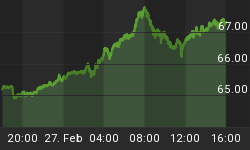Mortgage debt remained essentially flat in 2015 but the brief period of household debt deleveraging ended in 2013.
Since then student debt, credit card debt, and especially auto loans have been on the rise.
A New York Fed "Liberty Street" study shows Household Debt Grew Slowly in 2015 as Mortgage Balances Stayed Flat.
Household debt balances increased, albeit sluggishly, throughout 2015. The increase marked the third consecutive annual rise in household balances, after 2013's modest increase ended four years of reductions. However, the growth in debt has been moderate. Overall, balances owed by households grew $288 billion in 2015, slightly less than the $306 billion increase seen in 2014 and still less than the growth seen in the early 2000s.

The growth has been primarily the result of large increases in nonhousing balances, particularly in student and auto loans; auto loans had another banner year in 2015 with a $109 billion increase, while student loans increased by $75 billion. Credit card balances increased by $33 billion. Originations were robust for auto loans, which saw the highest level of originations since at least 1999. Newly originated mortgage balances remained somewhat sluggish, with the lion's share of new mortgages going to borrowers with the highest credit scores.
Auto Loan Durations Hit Record High
The rise in auto loans and student debt are both problematic. And the duration of auto loans keep going up and up.
The average new car loan has reached a record 67 months, reports Experian, the Ireland-based information-services company. The percentage of loans with terms of 73 to 84 months also reached a new high of 29.5% in the first quarter of 2015, up from 24.9% a year earlier.
Long-term used-vehicle loans also broke records with loan terms of 73 to 84 months reaching 16% in the first quarter 2015, up from 12.94% -- also the highest on record.
Those loan duration numbers are from June 2015.
Here are some additional Household Debt charts from the New York Fed Quarterly Report on Household Debt.
Number of Accounts by Loan Type

Mortgage Originations

Auto Originations by Score

Expect More Debt Deleveraging
Give auto dealers your monthly budget and they are guaranteed to make it "affordable" for you. Lengthening duration is a way to make something seem affordable when it's not.
Rapidly rising student debt and the non-rise in mortgage debt go hand-in-hand. Millennials cannot afford houses so they don't buy them.
With the break in the stock market, and a recession at hand, another debt deleveraging cycle is coming up.















